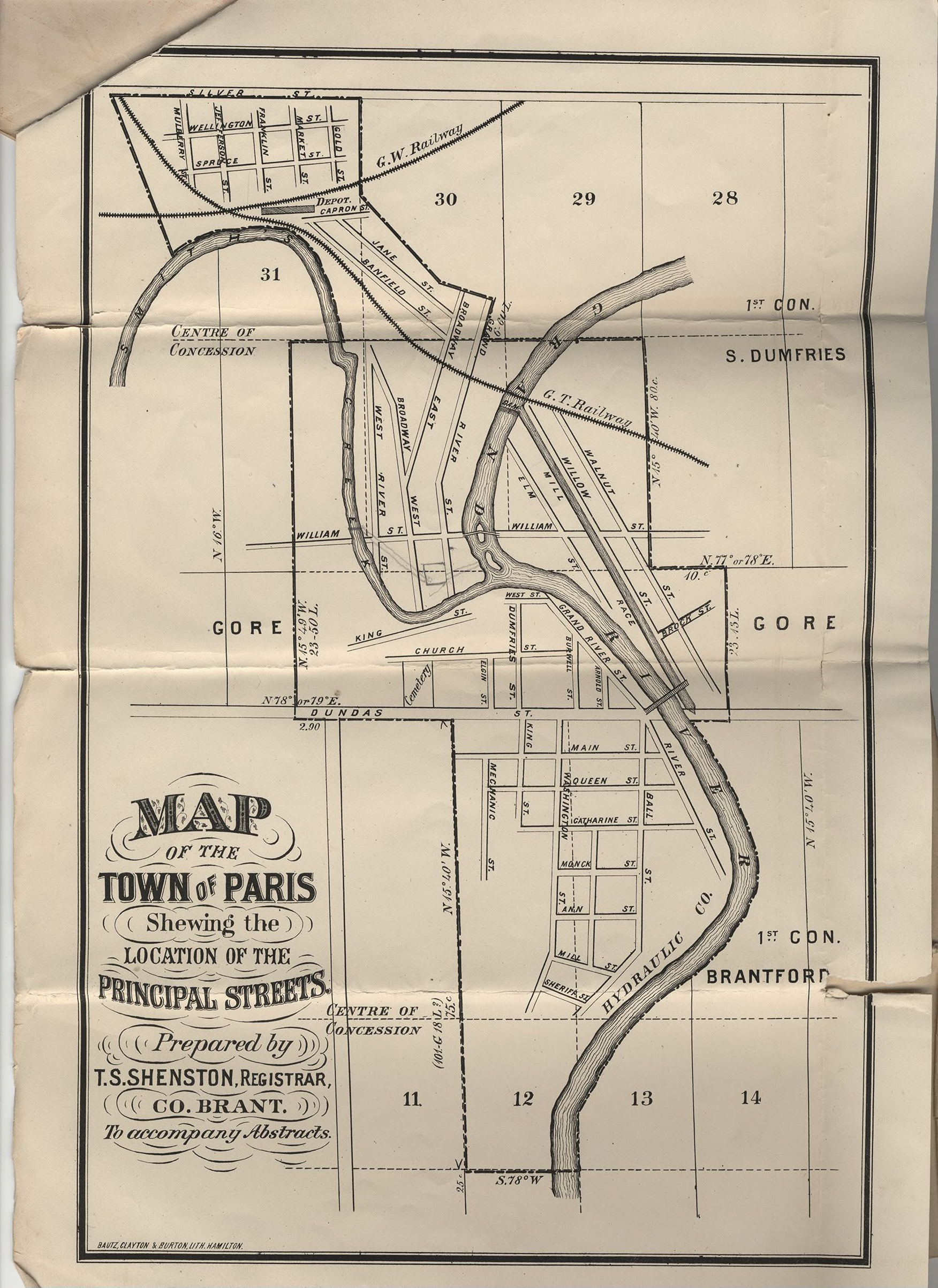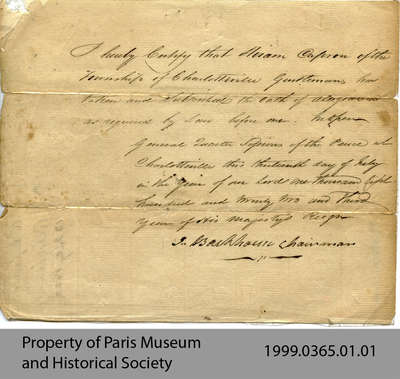
Hiram Capron's Life
Capron comes to Canada
Pages
IntroductionCapron's early lifeCapron comes to CanadaFamilyThe Beginnings of ParisTroublesEnd of Capron's LifeReferences
Map of Paris showing subdivision into lots Details
While it was the furnace that brought him to Canada, his future was decided by a chance meeting in the place that would eventually become Paris. In 1823, when his furnace had been operating for a year, Capron was travelling the province selling the iron-ware produced by his new furnace when he came upon the land of William Holme, one of the earliest settlers to the area (Smith, 9). While Holme had built a small gypsum mine in the area’s generous deposits, with a shallow raceway and mill to process it (8), the land was still mostly undeveloped.
Capron was entranced by its natural beauty; D.A. Smith (10) describes how he “gazed spellbound upon the beautiful valley, then in its natural beauty and rugged grandeur”. Seeing an opportunity, he declared, “I made up my mind to own this lovely vale.” He bought Holme’s lands and businesses, and began expanding them with new mills and infrastructure like water power to attract other industry. He bought up most of the other undeveloped estates in the area; most of the Paris land north of Dundas Street belonged to him at one time (Smith, 8).
Capron was entranced by its natural beauty; D.A. Smith (10) describes how he “gazed spellbound upon the beautiful valley, then in its natural beauty and rugged grandeur”. Seeing an opportunity, he declared, “I made up my mind to own this lovely vale.” He bought Holme’s lands and businesses, and began expanding them with new mills and infrastructure like water power to attract other industry. He bought up most of the other undeveloped estates in the area; most of the Paris land north of Dundas Street belonged to him at one time (Smith, 8).

Capron’s Oath of Allegiance Details
By this time, Capron had already decided that Canada was the place to make his future. He was so sure, in fact, that in 1822 he revoked his American citizenship and swore an oath of allegiance to the British Crown, giving him all the rights of a natural born Canadian citizen. Having committed his life to Canada, Capron began raising his family here too.
